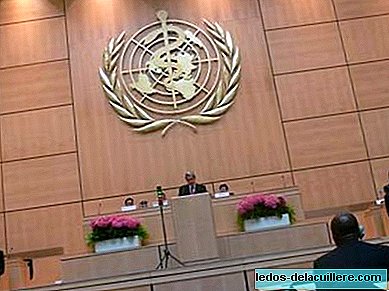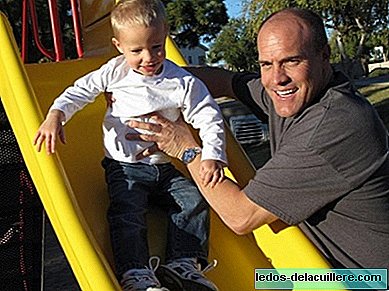
Many of you will have heard the following phrase related to breastfeeding: WHO, UNICEF, the Spanish Association of Pediatrics, the American Association of Pediatrics (and thus could follow a few lines) advise that Breastfeeding is the only food for babies up to six months.
After six months, breastfeeding is still recommended as the main meal but complemented with other foods. This new food is commonly called "complementary feeding."
The decision to give these recommendations was taken at an Expert Meeting on the Optimum Duration of Exclusive Breastfeeding, convened by WHO in 2001.
After reaching a consensus, that same year, at the 54th World Health Assembly, Member States were encouraged to promote exclusive breastfeeding up to six months as a global public health recommendation. This recommendation was based on the conclusion that exclusive breastfeeding provides several benefits to the child and the mother (I comment some of those that were evidenced. Now, eight years later, many more are known):
• One of the main benefits is the protective effect against gastrointestinal infections in both developing and industrialized countries.
Studies carried out in the United Kingdom determine that diarrhea diseases due to bottle feeding have a cost of 34 million euros per year in hospital care.
In Australia, the increase in exclusive breastfeeding up to three months from 60% to 80% would have effects on otitis media, diabetes, gastrointestinal diseases and eczema, saving up to 9.4 million euros per year.
• Breastfeeding protects against other infections such as colds, bronchiolitis, pneumonia, otitis, meningitis, urine infections, necrotizing enterocolitis and even sudden infant death syndrome (SIDS).
• It is an important element of prevention of future diseases (of appearance in more adult ages) such as asthma, allergies, obesity, immune diseases such as diabetes, Crohn's disease, ulcerative colitis, atherosclerosis and myocardial infarction.
• Some studies suggest that psychomotor development improves with exclusive breastfeeding for six months but more research is needed to confirm this finding.
• For the mother, exclusive breastfeeding for six months prolongs the duration of lactation-induced amenorrhea, preventing the onset of anemia after childbirth, accelerates weight loss and decreases the risks of hypertension and postpartum depression.
Tomorrow you can read the second part to know the rest of what happened at the Meeting of Experts on the Optimum Duration of Exclusive Breastfeeding.












